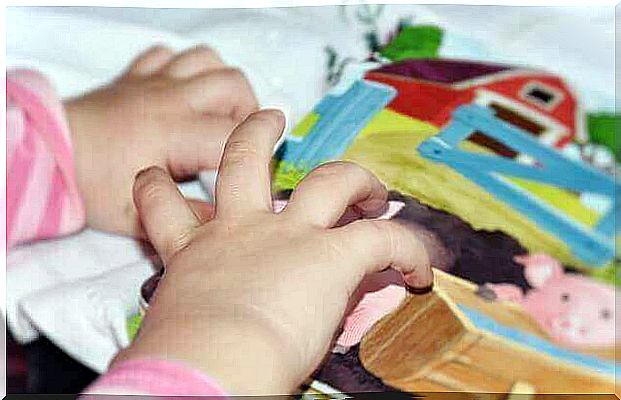Six Exercises To Help Children With Language Difficulties

Children with language difficulties should receive help from a professional and from their parents. This is the only way to develop and improve it over time.
Do not allow a child close to you to be bullied because of their language skills.
First of all, it is important to point out that in children, a delay in language development will not mean problems in other aspects of their development.
The fact that a child has difficulty speaking does not make him or her less intelligent or incapable. It is also likely that language problems of this type only occur in childhood.
Although it may be hard to believe, young people and adults with excellent speech skills may have had language problems when they were young. Still, it did not limit their development or stop them from having a completely normal adult life.
The key is to know how to help children with language difficulties.
What exercises can help children with language difficulties?
1. Card

First of all, cards that refer to sounds can really help children pronounce each syllable correctly.
- The best way to do this is to turn this exercise into a game and reward the child when they pronounce each sound correctly.
2. Mirror exercises
Mirror exercises are very useful for children who have difficulty pronouncing words and sounds. The mirror helps to teach them the correct way to move their mouth and to make the sound of each word.
3. Repetition
Repeating words over and over again is one of the most effective exercises to help children with language difficulties.
- Nevertheless , the exercises should be done slowly.
- In this way, the child will be able to listen to them and hear phonemes.
4. Talk to the children

Parents and other family members should communicate frequently with children who have a language delay. This promotes verbal communication, giving the child the opportunity to hear new words, learn them and be able to communicate correctly.
5. Strengthen the speech to the children
To strengthen the language skills of young children, it is best to only give them what they are asking for if they say the right word and do not have to resort to hand gestures. This motivates the child to find a way to use language to get what they want.
6. Reading

The next exercise is reading, which is a suitable source for strengthening children’s language skills. After all, by reading, they want to develop new vocabulary. By reading , they learn to structure sentences better and pronounce the words they find more difficult. Stories, for example, also help stimulate their creativity and imagination.
How are language difficulties diagnosed?
One of the biggest challenges parents have to deal with is identifying whether their child either has language difficulties and whether they need the support of a specialist. Regardless, it is important to empathize that each child has his / her own variations of development in speech.
Some of the situations that can help identify if they have language difficulties include identifying if :
- When they are 8 months old and the child has not yet said a single word, does not point to objects and does not show any interest in or intention to communicate.
- If a child of 18 months does not understand simple instructions of a maximum of three words.
- If at the age of two they only repeat what they hear and you can not understand what they are saying.
- If at the age of three they do not form the plural or use the pronoun.
- Whether at the age of four they pronounce consonants incorrectly, make nasal sounds or do not use verbs when speaking.
Recommendations for parents of children with language difficulties
First of all, parents should keep in mind that children learn languages by imitation and by listening to the people around them. For this reason, it is important to talk to them a lot. Do this in simple and clear language.
During breastfeeding, it is important to dedicate time to verbal communication with children. Believe it or not, it’s the best time to start teaching them signs and imitations of sounds and gestures.
Similarly, from the age of six months and upwards, parents should read to their children daily. Stories with pictures are ideal for stimulating language development.
Take advantage of the bath time or when you change clothes on them to strengthen speech and language. These are ideal situations for naming objects, garments and parts of the body.
Finally, parents and other people around the children should not laugh at their mistakes. Naturally, teasing them will cause significant psychoemotional damage in children with language problems.









